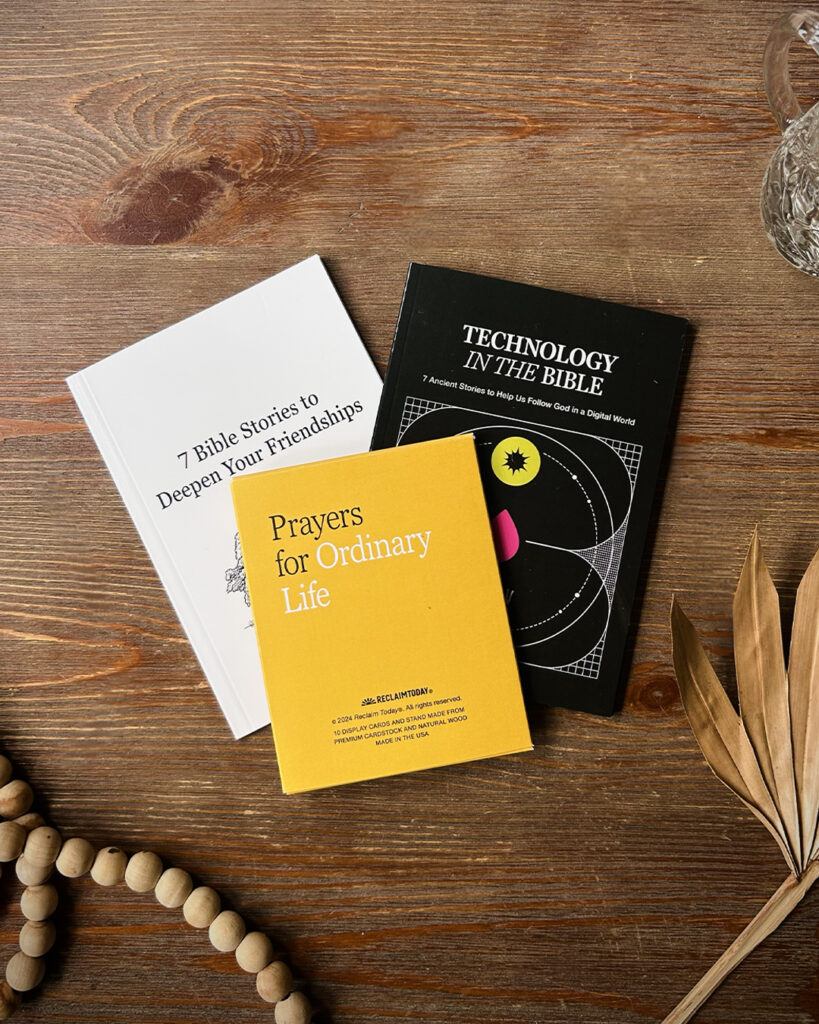cw: trauma, including brief mention of sexual assault
I vibrated with anger, hung up the phone, blocked his number, and thought, “How could he refuse to answer me? Who does that to someone they love? I want to forgive him, God. I don’t want to go back to that dark place of unforgiveness, but I don’t want this. Please help me move on. I don’t know how to handle this. Show me what to do.” I was finished, wiped the tears from my eyes, and pulled myself together. I resolved to move on.
I proceeded to watch a video from an online course I was taking. When I clicked play, the instructor said, “When we move around in our daily lives, we store up a lot of junk and pack boxes away in the attic where no one can see. We also pack things away in our own little spiritual boxes. Sometimes it’s unforgiveness. Sometimes it’s trauma.” I paused, took my hand off the mouse, and sat back in my desk chair. Old pain resurfaced in a new moment. New tears replaced the ones I’d just wiped away.
The words pierced. I had let unforgiveness out of the box but not the trauma of betrayal. The sting remained. I was like a light-sensitive patient being forced into sunlight. I wanted to stay inside, yet the pain made God seem far away and blocked true forgiveness. Instead of confronting it, I wanted the past to stay in the box.
But despite my best efforts to move on, old pain was pushing its way out of the box—a clear sign of trauma. It lives under the surface until someone trips a proverbial wire, and you become your alter ego—you’re triggered. You flare like a raging lion. You retreat like a wounded lamb.
Whatever the case, until resolved, trauma is like a recurring ache, a frequent numbness. You can function with it, but you know it’s there. It’s like that one carpet stain you scrub repeatedly but can never fully remove from the deepest parts of the strands.
Oh yes, I know trauma, and it knows me. I experienced family wounds and sexual assault early in life. But the truth hidden in plain sight during that phone call was that trauma had shaped my reaction. Did I see things clearly? Did I even hear clearly? Why did I react with such vehement anger? Why did I proceed to put the situation in a box?
The presenting problem— trauma. It’s the residual effect of fear and unhealed wounds within the soul.
I raged before I ended the call and retreated afterward. No one who’s been traumatized wants to be wounded again. And it’s more painful when loved ones hurt us. So, I put the situation in a box with my anger and brokenness and determined to lock it away.
The effect— I was moving yet paralyzed.
My focus fragmented, and my soul swayed. I had pushed God away because it was too painful to let trauma out of the box, so I had no anchor. Despite my self-will, I couldn’t move forward. My soul wavered and swayed like violent seas with every step I attempted.
The realization— I couldn’t be free from trauma without forgiveness, nor free from unforgiveness without healing from trauma.
I knew it’d be impossible to separate the two if I really wanted to deal with the issue, and it’d be impossible to retreat from God and experience healing. Worse, I’d boxed myself in, when I tried to put the trauma in a box.
The conclusion— Sometimes, life is like a box of trauma, and the only way out is to draw near to God.
I had to get out; I went to the Scriptures. I turned to King David for an example. He was familiar with trauma. He was a murder target and man of war, seeing many soldiers die on the battlefield. He lost a child to premature death, had a daughter who was raped by his son, and was the victim of a coup d’état masterminded by another son. David also caused trauma for others—taking advantage of a woman, orchestrating the murder of her husband, and he had so much blood on his hands, the Lord required his son to build the temple instead of him. That’s a lot of traumas. Yet, from experience, David said, “The Lord is close to the brokenhearted and saves those who are crushed in spirit” (Psalm 34:18).
Trauma’s pain can be so intense, we don’t know what to do or how to pray. But Psalm 34:18 tells us God is never far from our pain. I didn’t know what to pray until I focused on His nearness and received His love again. He is near. He is ready to heal if we open the stowed-away places—the “boxes”—of our hearts. He’ll step into our trauma and fill our hearts with His love.
So how can we let Him? How did God do it for King David? What steps can we take?
1. Don’t draw back; draw near to God. If you’ve been angry with Him or distanced yourself from Him, confess that and ask for His forgiveness. He promises to draw close to those who draw close to Him.
- I pour out before him my complaint; before him I tell my trouble (Psalm 142:2).
- Come near to God and he will come near to you. Wash your hands, you sinners, and purify your hearts, you double-minded (James 4:8).
2. Relate to him as Father—not Lord, king, or master of the universe. Take a risk and come to Him as if He’s your Heavenly Father who has compassion for His child.
- As a father has compassion on his children, so the Lord has compassion on those who fear him; for he knows how we are formed, he remembers that we are dust (Psalm 103:13-14).
3. Pour your pain out to Him. Invite God into the painful memories in your heart—the negative words, and hopeless moments. Invite Him into those moments and ask Him to heal them.
- Trust in him at all times, you people; pour out your hearts to him, for God is our refuge (Psalm 62:8).
4. Pray and share with others. Seek a trusted accountability partner or support community familiar with God’s healing power. God gave David deep friendship and accountability through people like Jonathan and Samuel. He can also draw near to you through friendship, accountability, or professional counseling or therapy to help heal trauma.
- Jonathan said to David, “Go in peace, for we have sworn friendship with each other in the name of the Lord, saying, ‘The Lord is witness between you and me.’” (1 Samuel 20:42).
- Therefore encourage one another and build each other up, just as in fact you are doing (1 Thessalonians 5:11).
5. Pray consistently, despite the betrayal—despite the pain. Cast your cares on Him.
- Cast your cares on the Lord and he will sustain you; he will never let the righteous be shaken (Psalm 55:22).
6. Focus on His ever-present lovingkindness.
- Yet the Lord will command his lovingkindness in the day time, and in the night his song shall be with me, and my prayer unto the God of my life (Psalm 42:8).
You may be dealing with unforgiveness or trauma, but God is near enough to help you let trauma out of the box when you pour your pain out to him. Sometimes, life is like a box of trauma, but God is there to help us unwrap it and clear the “attic” places in our hearts. He was near to me; He was near to King David; and He promises to be near to you.


